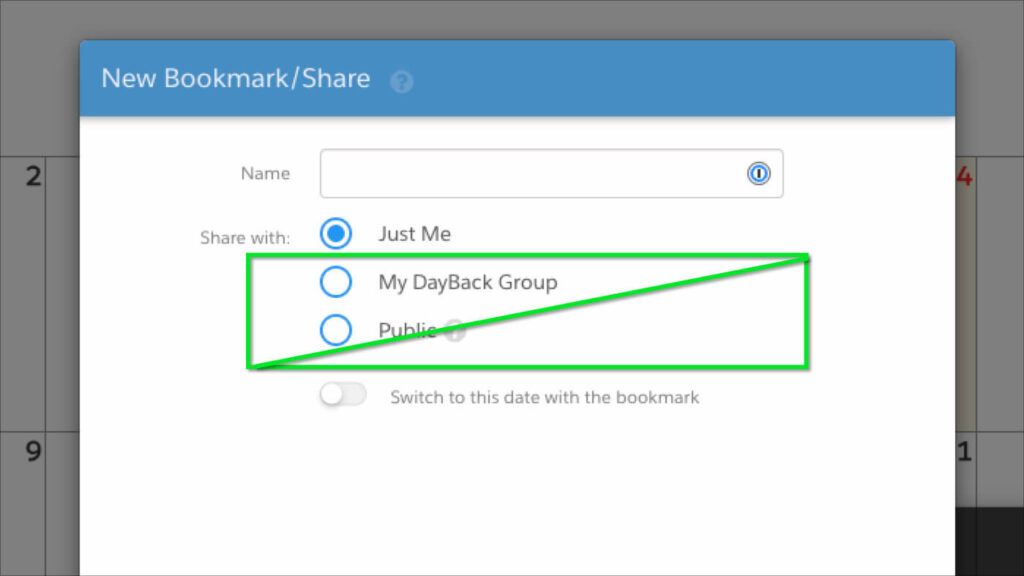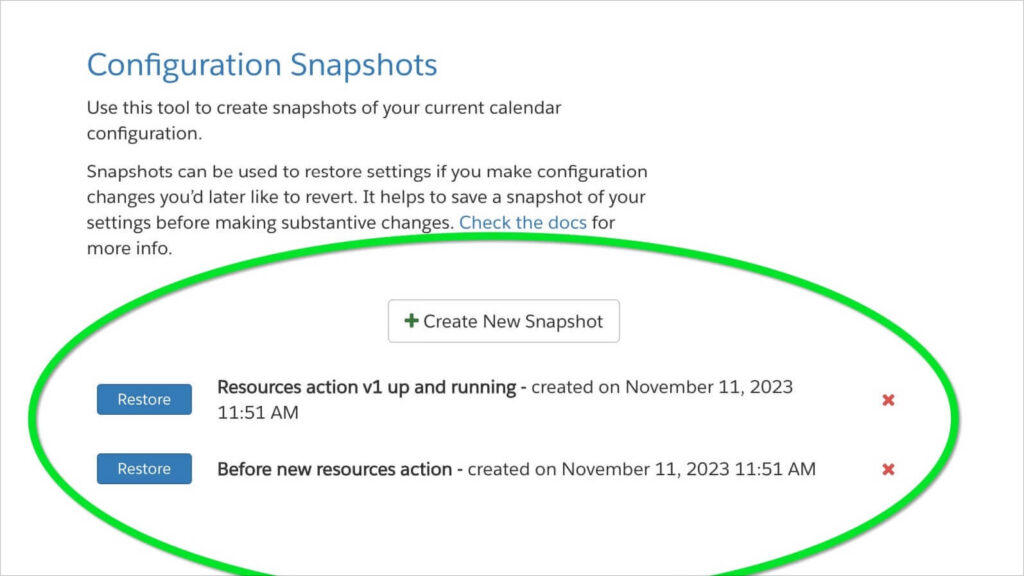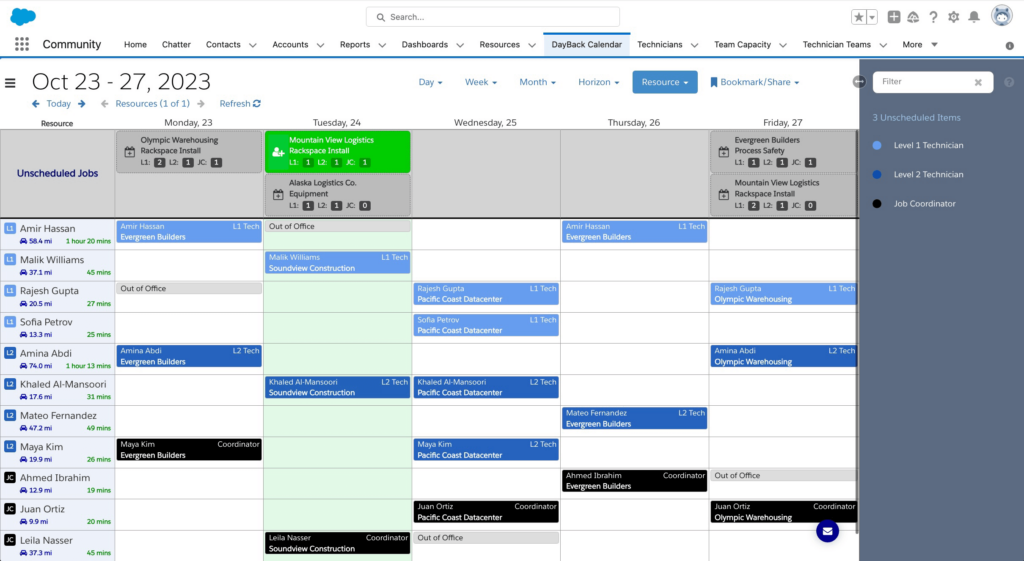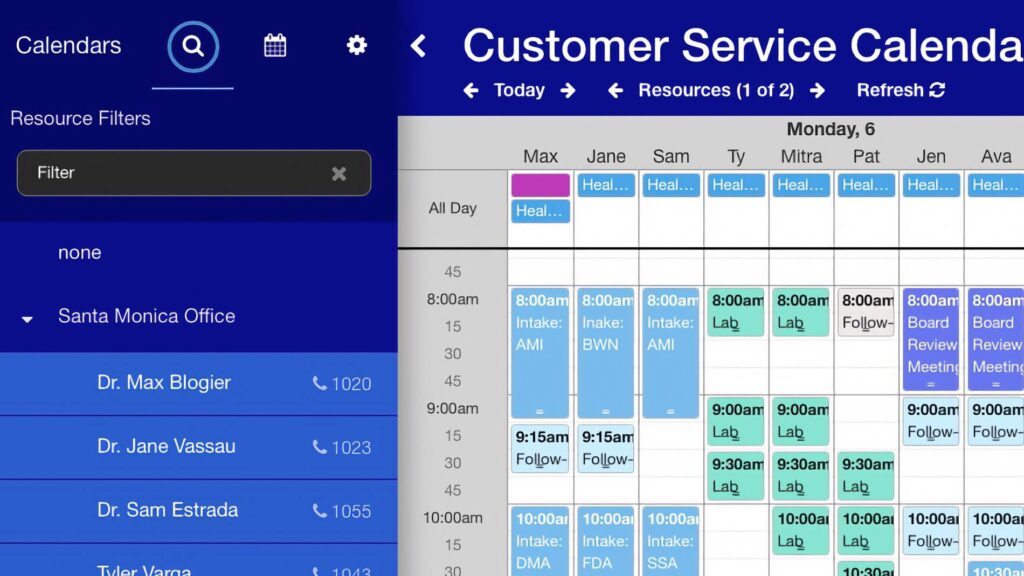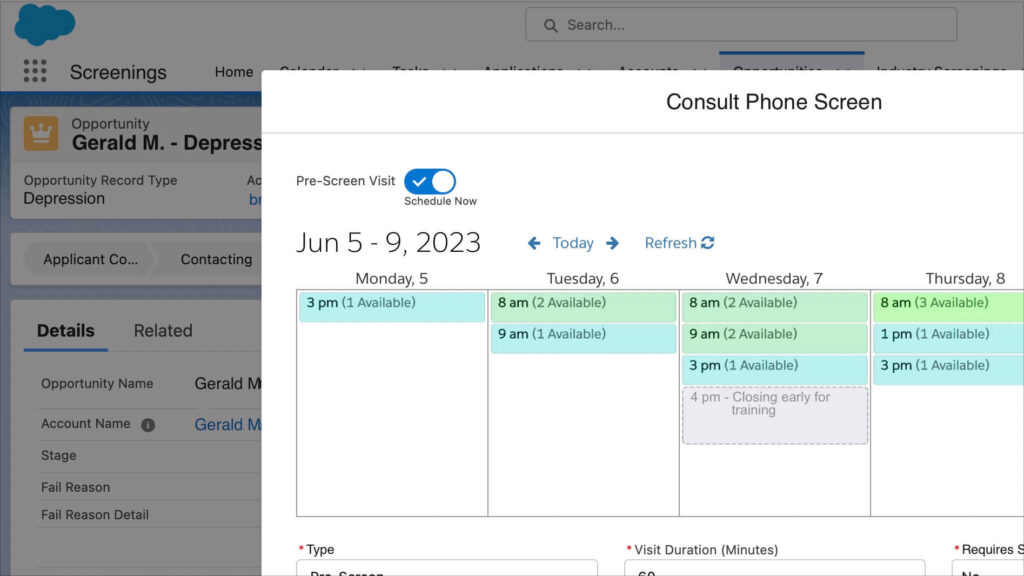DayBack allows you to create both private bookmarks for yourself and public bookmarks to share across your DayBack group or with those outside of DayBack. You can allow bookmark creation for your administrators or every user in your organization. But let’s say you want your users to create private bookmarks for themselves but don’t want […]
For Developers
New Admin Tools for Calendar Settings
Our customers are more likely to try new things when it’s easy to revert their changes. So, we’ve introduced some new tools to make it easier for large deployments to manage their calendar setup. We hope these tools help you feel more confident customizing your calendar and building creative workflows to defend your time. Migrate […]
Assign Technicians by Skill Set and Drive Time
Field Service Jobs Requiring Multiple Technicians Gathering your team’s availability and scheduling jobs based on specific staffing requirements is a common challenge for Field Service teams. We’ve previously shown you how DayBack and be used to simplify the process of soliciting availability from team members. In today’s video, we’d love to show you a way of […]
Customizing DayBack’s Look and Feel for Different Users
Personalize DayBack’s Appearance by User Role Our customers often need to deploy different calendar interfaces to specific users, user groups, or Salesforce Profiles. They need a calendar platform that provides users with a tailored and personalized experience. This blog post will demonstrate a new Custom App Action that allows you to customize each individual’s calendar […]
Embed DayBack Calendar in Salesforce Flows
You’ve always been able to embed DayBack on a Salesforce record page, and now you can include the calendar in Salesforce flows. On an opportunity’s record page, for example, DayBack can show the appointments or work orders for the opportunity. In a flow, DayBack picks up criteria from the flow and offers potential appointment slots […]
